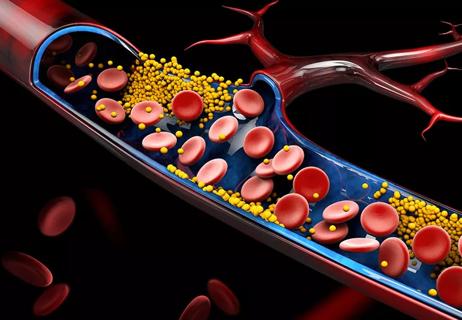Reassurance from the lipid outcomes trial with the highest percentage female enrollment to date

When the Cleveland Clinic-led CLEAR Outcomes study was published last year in the New England Journal of Medicine (2023;388:1353-1364), it was notable for showing for the first time that bempedoic acid (Nexletol®) significantly reduced major cardiovascular events (MACE) in statin-intolerant patients treated for primary or secondary cardiovascular prevention.
Advertisement
Cleveland Clinic is a non-profit academic medical center. Advertising on our site helps support our mission. We do not endorse non-Cleveland Clinic products or services. Policy
Less well appreciated was another point of distinction for the trial: with women constituting 48% of study participants, CLEAR Outcomes had the highest percentage enrollment of females among all contemporary outcomes studies of lipid-lowering therapies.
Now the CLEAR Outcomes investigators have leveraged that large cohort of female patients to publish a prespecified subgroup analysis that represents one of the most robust — and encouraging — reports on the clinical effectiveness of lipid-lowering therapy in women to date.
“Data on clinical outcomes of lipid-lowering therapies in women have been limited,” says Leslie Cho, MD, first author of the new prespecified analysis, published in Circulation (Epub 6 Apr 2024). “Moreover, prior research has shown that, in the United States, women are less likely than men to have hypercholesterolemia diagnosed and more likely to report statin intolerance. We viewed CLEAR Outcomes, which assessed clinical outcomes among more than 6,700 women, as presenting a singular opportunity to evaluate whether clinical effects of lipid lowering — in this case, with bempedoic acid — varied by patient sex.”
As detailed in the primary CLEAR Outcomes study report, the trial randomized 13,970 patients in 32 countries to oral bempedoic acid 180 mg/d or placebo in a double-blind manner. All patients had cardiovascular disease or were at high risk for it and were unable or unwilling to take statin therapy at guideline-recommended doses. Of the study’s 13,970 patients, 6,740 (48.2%) were women. A large majority of patients (91%) identified as white, and 17% identified as being of Hispanic/Latino ethnicity.
Advertisement
The current analysis by patient-reported sex was specified in the study protocol for the composite primary efficacy endpoint (death from cardiovascular cause, nonfatal myocardial infarction [MI], nonfatal stroke or coronary revascularization; MACE-4) and a key secondary endpoint (death from cardiovascular cause, nonfatal MI or nonfatal stroke; MACE-3). Median patient follow-up was 3.4 years. Hazard ratios (HRs) were estimated relative to placebo within each sex using a Cox regression model with post hoc adjustment for demographic and baseline characteristics.
The analysis showed that bempedoic acid lowered cardiovascular risk comparably in females and males, specifically:
Similarly, analysis of safety results showed no meaningful differences by sex in rates of serious adverse events, rates of overall adverse events or changes in laboratory measures.
“It’s reassuring that reductions in clinical events with bempedoic acid were similar among women and men in CLEAR Outcomes and that adverse events were comparable as well,” says Dr. Cho, Director of the Women’s Cardiovascular Center at Cleveland Clinic and Co-Section Head of Preventive Cardiology. She notes that the notably lower cardiovascular event rates among women versus men in both the active and placebo study arms are characteristic of other cardiovascular outcomes trials, particularly cholesterol-lowering studies.
Advertisement
“The results of this new analysis are welcome because experience shows that lipid-lowering alternatives to statin therapy, given alone or in combination, are needed by a sizeable number of patients,” Dr. Cho says. “We can now have confidence that these patients can achieve reductions in cardiovascular risk and events with bempedoic acid irrespective of their sex.”
“This subgroup is analysis is important because some prominent physicians have questioned the value of cholesterol lowering in women,” adds co-author Steven Nissen, MD, Chief Academic Officer of Cleveland Clinic’s Heart, Vascular & Thoracic Institute. “Dr. Cho’s analysis confirms that women have comparable benefits to men. Because statin intolerance is more common in women, having an alternative for treatment of elevated cholesterol in women is particularly valuable.”
Advertisement
Advertisement

Phase 3 TANDEM study may help pave way to first approval of a CETP inhibitor

Tech-assisted self-selection concurred with clinician-assessed eligibility in >90% of cases

Robust reductions in cardiac events seen in high-risk patients without prior events

Findings bolster the oral drug as an option for primary and secondary prevention

Effect on gut microbiome emerges as another benefit of statin therapy

Randomized controlled study undercuts unsubstantiated ‘heart health’ claims

First-in-human phase 1 trial induced loss of function in gene that codes for ANGPTL3

Newly identified pathway may explain the so-called niacin paradox